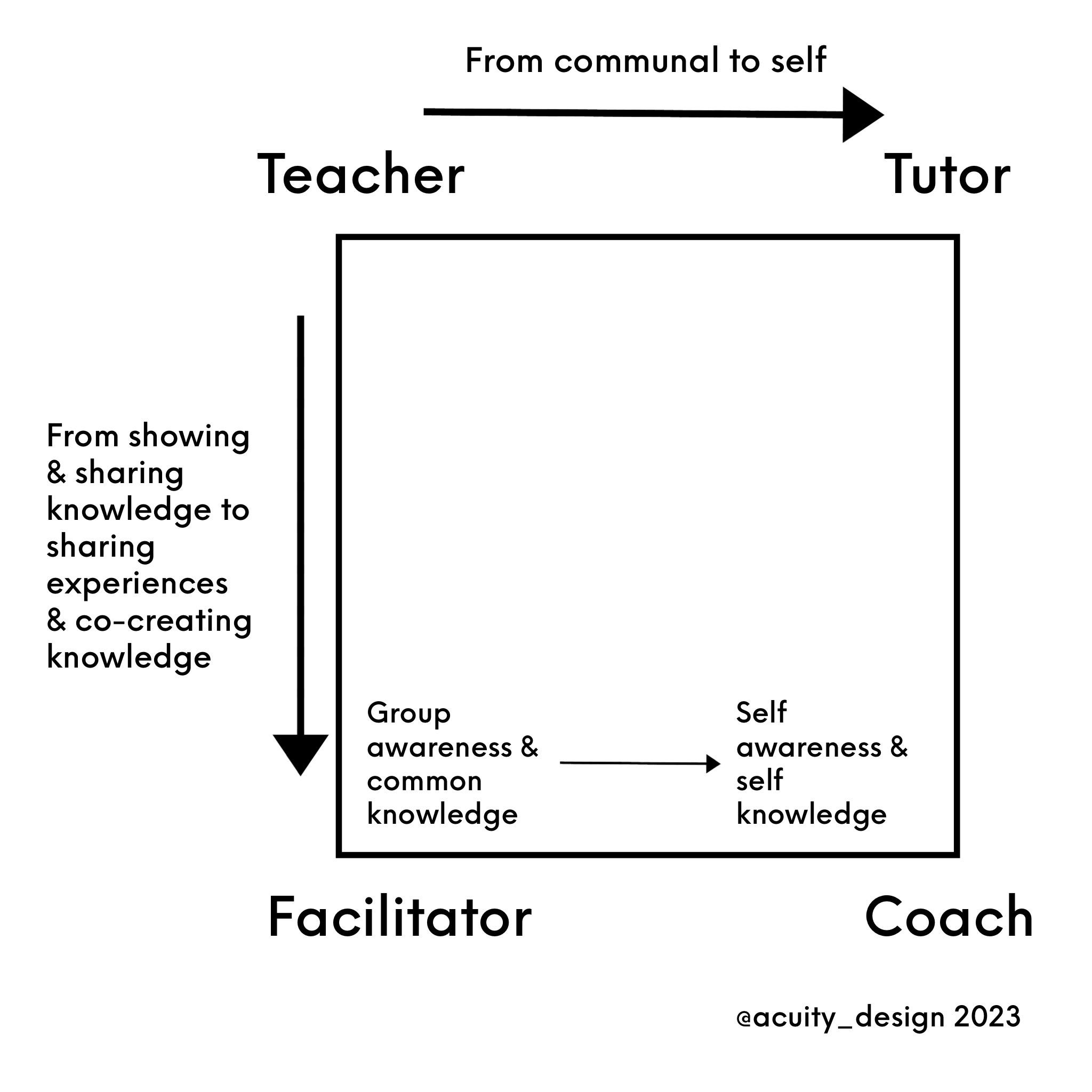Why coach?

For 2023, I’m starting to coach people in workshop design and facilitation skills.
This post is about the idea of coaching and the choice to be a coach.
Becoming a facilitator
The diagram at the top of this post has four roles on it – teacher, facilitator, tutor and coach.
I mostly work thru workshops. Early on it was more a teacher role. Explaining ideas about senses and perception in design. The more time I spent running those kind of workshops, the less value I saw in my work and the greater value I saw in the participants meeting, sharing and making.
Realising my disatisfaction, I sought training in active facilitation skills, I shifted roles and became more of a facilitator. Rather then teaching knowledge, I would hold a space with questions to enable people to share experiences and co-create knowledge.
As a shy person (I use shy as I am not a beliver in the extrovert/ambivert/introvert model), this new role was both stressful and an emotional drain. The workshop facilitation issues of self-care and safety came up both for participants and myself.
I have spent a few years facilitating and in the last two years have tried to share skills so more people can design and run their own workshops. Designing Hybrid Workshops has been a series of online workshops on the design of workshops and the issues of time structures and safety.
Becoming a coach
What I now recognise in these workshops is that trap of teaching tools and processes, of talking about content and contexts. This is not enough when thinking about how to design and facilitate workshops.
Understanding that emotional strain and drain I feel is the real core. The sense of self, both as I recognise it and as participants perceive it and the shifting roles and ways of being that enable successful workshop outcomes.
That is within me. It is about feeling when I am not enough or when I give too much.
Tools and processes can help frame these issues. I use the tools I offer to take strain off myself and participants. I use shifts in presentation methods to offer different aspects of myself that work with different people, contexts and goals. Yet, at the heart of it all, is how I feel about myself.
This is why I think I need to become a Coach now.
Facilitation is mostly about enabling a communal sharing of lived experiences and co-creation of new common knowledge.
Coaching is personal not communal. Self awareness and self-knowledge.
How I design and run workshops is founded in who I am and who I am seen to be (a well-spoken white middle aged man). That central characteristic has a whole range of privileges and powers. The tools and processes I offer depend on who I am, where I work and who I work with.
Coaching is the only way of approaching the issues of how much new workshop designers and facilitators need to understand themselves better to be better. Tools and processes frame the space for discussion, but it is metacognition and self-awareness that are the real conversations.
Metacognition in terms of the shifting senses of Confidence and Certainty that are needed to draw people in and enable conversations. Self-awareness in terms of knowing the gap between what people and content demand of you and what you feel capable of.
2023
Thus I am starting 2023 by offering Workshop skills coaching.
I am using this post to try and better understand what that really means to me and to the people I hope to work with.